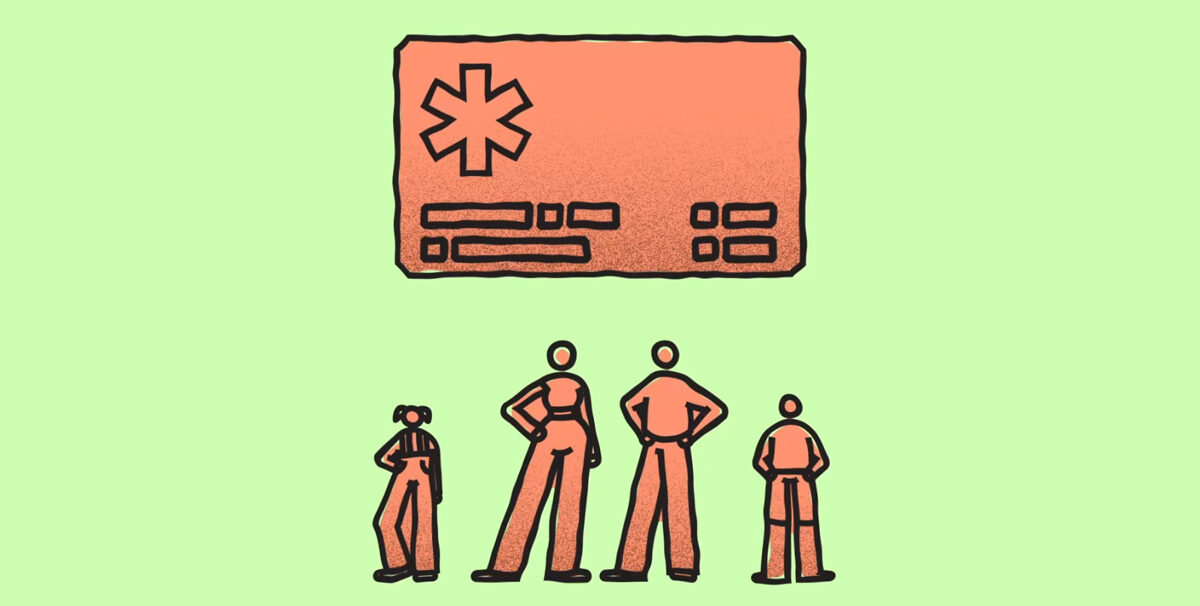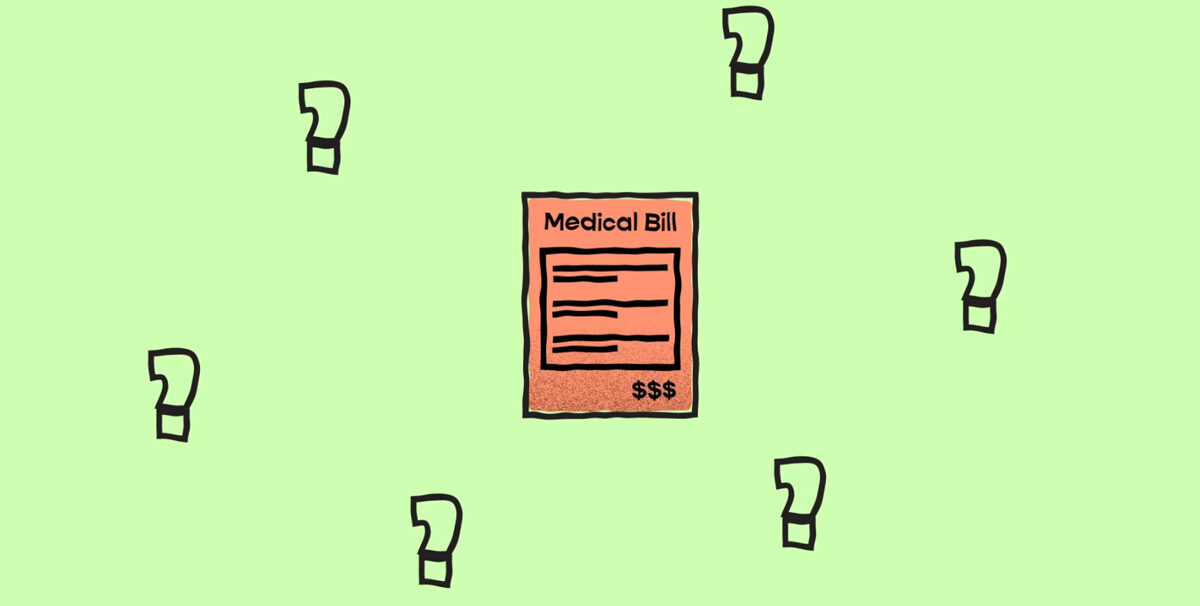As the new year approaches, you may find yourself reflecting on the past year. This introspection is a significant first step toward selecting a New Year’s resolution to help you grow as a person. However, 80% of New Year’s resolutions fail by mid-February due to a lack of self-discipline, according to U.S. News and World Report. That’s why it’s important to set yourself up for success when you’re choosing a resolution. Regardless of what you choose as your resolution, make sure it’s a “SMART” goal—one that is Specific, Measurable, Achievable, Relevant and Timely—to increase the odds that you will stick to it. Remember that New Year’s resolutions don’t have to be health-related, so find what matters to you to help you live a better life in 2023.
Take charge of your health and schedule your annual physical, bi-annual dental cleanings and other preventive screenings this month. Take action each week:
- Questions to Ask your Primary Care Provider
- Stay Healthy for Life
- Exercise and Healthy Eating
- What is Well-being?
Top Questions to Ask your Primary Care Provider at Your Annual Wellness Exam
When you’re meeting with your provider, it would be beneficial to have questions ready prior to your appointment. This will ensure your questions are answered while you’re with the doctor to become a smarter healthcare consumer. Use this list of questions as a foundation to talking with your doctor/provider this year!
- Have my blood pressure, pulse, or weight changed?
- How have my lipids, blood sugar, A1c and other labs changed? Are they in normal ranges?
- Am I due for any preventive exams or additional lab work? (age/gender-related screenings & family history)
- Do I still need my medication at this dose? Is there a more affordable option for this medication? (If applicable) Note: If your provider reviews your medications with you, they can use an additional CPT code, which could be billed back to you. Be sure to ask your doctor about your medications without going into great detail unless necessary to prevent surprise medical bills.
- What would a discontinuation plan look like to get off my medication? (If applicable)
- Am I getting enough sleep and enough water in my day?
- Are my bowel movements normal?
- Is this normal? (Describe any unusual symptoms or anything abnormal)
- How often do I need to exercise to feel my best and prevent disease and illness?
- What should I do between now and my next visit?
- How can I learn more about my health?
- What important questions haven’t I asked?
Quick-Tip! Often providers will order preventative lab work at the time of your appointment. This helps to determine what lab work may be needed. If you have an established provider, it may be beneficial to ask your provider prior to your appointment to order these labs so you can discuss the results and how they’ve changed from year to year at your appointment. If this is not possible, be sure to ask your doctor (or nurse) for a phone call to review your lab work results.
Staying Healthy for Life
Although the risk of disease and disability increases with age, poor health does not have to take over your later years. Many chronic diseases can be avoided through preventive measures. The secret to aging well is to establish a healthy lifestyle early and stick to it as you grow older.
Eat Right and Exercise Frequently
Proper nutrition is vital to maintaining good health. Follow a diet rich in fruits, vegetables, whole grains, nuts and fiber, and reduce fat and sugar intake. Improving your diet could extend your life span and reduce the occurrence of chronic diseases like heart disease, stroke and diabetes.
Being active is also important for health and longevity. Regular physical activity reduces your risk of dying from heart disease, and decreases your risk for colon cancer, diabetes and high blood pressure. Regular exercise also offers the following health benefits:
- Controlling weight
- Contributing to healthy bones, muscles and joints
- Relieving the pain of arthritis
- Reducing symptoms of anxiety and depression
- Decreasing the need for hospitalizations, physician visits and medications
Exercise does not need to be strenuous to be beneficial. People of all ages will benefit from moderate physical activity like taking a walk or swimming.
People tend to be less active as they age. Fortunately, people who are normally sedentary and have lost muscle mass can gain it back by increasing strength with moderate physical activity.
Stop Smoking
Tobacco use is the leading preventable cause of death in the United States. According to the Centers for Disease Control and Prevention (CDC), more than 16 million Americans are living with a disease caused by smoking, and more than 480,000 people die from smoking each year.
Tobacco use increases your risk for heart disease, cancer, stroke and chronic obstructive pulmonary disease (COPD). Abstaining from tobacco is one of best ways to protect your health.
Maintaining a Positive Outlook
Your mind plays an important role in your ability to age well and maintain a high quality of life. Being engaged with others and maintaining positive social connections can help you retain cognitive function as you age. The following are ways you can help maintain a healthy attitude as you get older:
- Maintain positive self-esteem.
- Take control of your life.
- Develop and maintain quality relationships with friends, family, significant others and colleagues.
- View life as meaningful and be thankful.
Following a healthy lifestyle can help lead to a longer life. By eating well, exercising regularly and avoiding tobacco you can reduce your chances of developing chronic diseases and improve your well-being for years to come.
Fitness First: Exercise and Eating Healthy
In addition to trimming your waistline, regular exercise and nutritious eating will help you feel better, think clearly and live a longer, healthier life.
Start Sensibly
Don’t begin your exercise program too ambitiously. The key to success is to start slowly and increase the difficulty of your workouts as you become more fit. Those who overdo it often experience muscle soreness, become discouraged and quit. Rather than trying to run three miles on your first day, begin by running a mile and increasing your distance as your fitness level improves. Most importantly, remember that feeling dizzy or ill is your body’s way of telling you that you are working too hard. If this happens, take a break or stop your workout for the day.
Find the Right Pace
Exercise should be fairly comfortable for you. Your pace should be just below the point at which you start to breathe quickly. Exercising at this pace produces two desirable results: it mobilizes fat burning and helps you develop endurance. This means that for maximum fat burning, longer, slower exercise is more beneficial than short, strenuous workouts. If you are reasonably fit and exercising at the proper pace, you should burn between 400 and 600 calories per hour during any aerobic exercise. This includes riding a stationary bicycle, walking or running on a treadmill or using a stair climber.
Counting Calories Means Trimming the Fat
The media is full of varying reports on how to lose or maintain weight. It’s no wonder that you may be confused about what foods to eat and what to avoid.
Most experts agree that eating a well-balanced diet low in fat is the key to losing weight. Since fat contains more than twice the calories of carbohydrates or protein, high-fat food equates to higher calories. While lowering your fat intake is important, it is also important to monitor your overall caloric intake. Your ideal caloric intake depends on your age, body size and level of activity. Generally, women ages 23 to 50 need an average of 2,000 calories per day, while men in the same age group require about 2,400 calories per day.
For more information about healthy eating, visit www.choosemyplate.gov.
What is Well-being?
In our health- and fitness-focused culture, it can be easy to lose sight of what well-being really encompasses. At its most basic level, well-being refers to feeling good and living in a safe and healthy way. It refers to wellness in all aspects of life, including but not limited to physical health, mental health, social health and financial health. The concept of well-being can have implications on your overall quality of life, health and happiness.
Learn more about four of the tenants of well-being—physical, mental, social and financial—and how you can focus on improving each area.
Physical Well-being
Achieving a state of physical well-being includes leading a healthy lifestyle, avoiding preventable diseases and conditions, and prioritizing your health. To improve your physical well-being, you should focus on:
- Getting enough exercise—Regularly exercising can improve your fitness level and physical health, reduce your stress (and thereby improve your mental health) and help you keep chronic conditions at bay.
- Eating a well-balanced diet—You’ll never be able to achieve a state of physical well-being if you don’t fuel your body properly. Eat a balanced diet to be well on your way to leading a healthy life.
- Prioritizing adequate sleep—Many Americans fail to get the proper amount and quality of sleep. However, doing this is one of the most important things that you can do for your health. Aim to get at least seven hours every night.
- Avoiding tobacco and alcohol consumption—Tobacco and alcohol can have very negative effects on not just your physical health, but your mental health, too. Avoid or limit your consumption of these substances to improve your physical well-being.
- Obtaining preventive care services—Taking care of your body involves receiving annual checkups at the doctor. These preventive care services can help you detect potential health problems early, allowing you and your doctor to devise a treatment plan as soon as possible.
Physical well-being is tied to mental, social and financial well-being, too, so focusing on improving those other areas of well-being are crucial.
Mental Well-being
According to the World Health Organization, there’s not a specific definition of mental well-being. However, various studies agree that achieving a state of mental well-being includes being able to:
- Realize one’s full potential
- Work productively
- Cope with the normal stresses of life
- Contribute meaningfully to one’s community
Mental well-being includes mental health, but goes far beyond treating mental illness. One main roadblock that people face when it comes to their mental well-being is chronic stress, which can lead to lack of sleep, which, in turn, can exacerbate stress.
While it may not be possible to eliminate all of the stressors in your life, there are plenty of ways to reduce stress:
- Plan and prioritize your most important responsibilities.
- Take breaks away from your workstation to mentally regroup. Consider going for a short walk to re-energize your mind.
- Listen to relaxing music to help you calm down.
- Take time off from work to clear your mind.
- Get enough sleep.
- Exercise and eat healthy.
Social Well-being
The concept of social well-being is one that’s commonly forgotten about, mainly because not many are familiar with it. Of course, there’s a social interaction component to social well-being, which involves forming professional relationships and volunteering in the community. Here are some simple ways to improve your social well-being:
- Volunteering—Giving back to one’s community has been proven to boost your mood. Volunteering can be fun and rewarding, as well as good for team building. There are many different ways to get involved with volunteering.
- Joining a club or sports team—Humans are inherently social beings, and joining a club or a sports team is a great way to connect with coworkers or other people in your community. Even if you’re not a great soccer player or a fantastic chef, joining such clubs or teams will give you the opportunity to learn new skills and make new friends at the same time.
Financial Well-being
Behind work-related stress, financial stress is the next biggest stressor for American adults. Financial instability can even affect your performance at your workplace. Imagine trying to focus on work when you don’t know how you’ll make your monthly car payment, or how productive you’d be if you had a pile of bills waiting at home. These situations illustrate the impact financial wellness can have on job performance and overall well-being.
Getting into the practice of saving will help you become more financially secure. Plan ahead so you have money waiting for you at retirement and so you can afford unexpected costs along the way. With the right preparation, you won’t have to worry when life throws you a curveball. Here are some tips to help you improve your financial well-being:
- Take advantage of an individual retirement account (IRA) or other saving mechanisms.
- Understand the savings options available to you.
- Know the difference between “Roth” and “traditional” IRAs. Pick the account that works best for you and begin saving.
- Set money aside in accounts you can access prior to retirement.
- Speak with a financial professional.
Source: IRS and U.S. Department of Labor
Summary
Focusing on overall well-being instead of just individual facets of wellness is a great way to improve your overall health and happiness. It’s never too late to start on your journey to total well-being.





